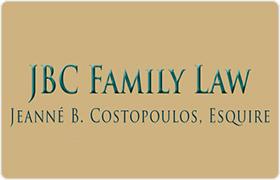Cumberland County, PA Divorce & Family Law Lawyers, page 2
Sponsored Law Firm
-
 x
x

Click For More Info:
-
Law Office of Jeanné B. Costopoulos
1104 Fernwood Avenue Suite 104 Camp Hill, PA 17011» view mapDivorce & Family Law Experienced & Aggressive Representation
Attorney Costopoulos' practice is focused exclusively on family law and is known by her clients as patient, confident, always responsive and aggressive when needed.
800-497-8501
Heather Nicole Orisko
Traffic, Mental Health, Guardianships & Conservatorships, DUI-DWI
Status: In Good Standing
FREE CONSULTATION
CONTACTTaylor Putney Andrews
Real Estate, Immigration, Estate, Divorce & Family Law, Criminal
Status: In Good Standing Licensed: 52 Years
Michelle Lee Sommer
Family Law, Child Custody, Divorce & Family Law
Status: In Good Standing Licensed: 20 Years
Bradley Leroy Griffie
Real Estate, Estate, Adoption, Divorce & Family Law, Elder Law
Status: In Good Standing Licensed: 43 Years
 Jeanné Costopoulos Camp Hill, PA
Jeanné Costopoulos Camp Hill, PA Practice AreasExpertise
Practice AreasExpertise
